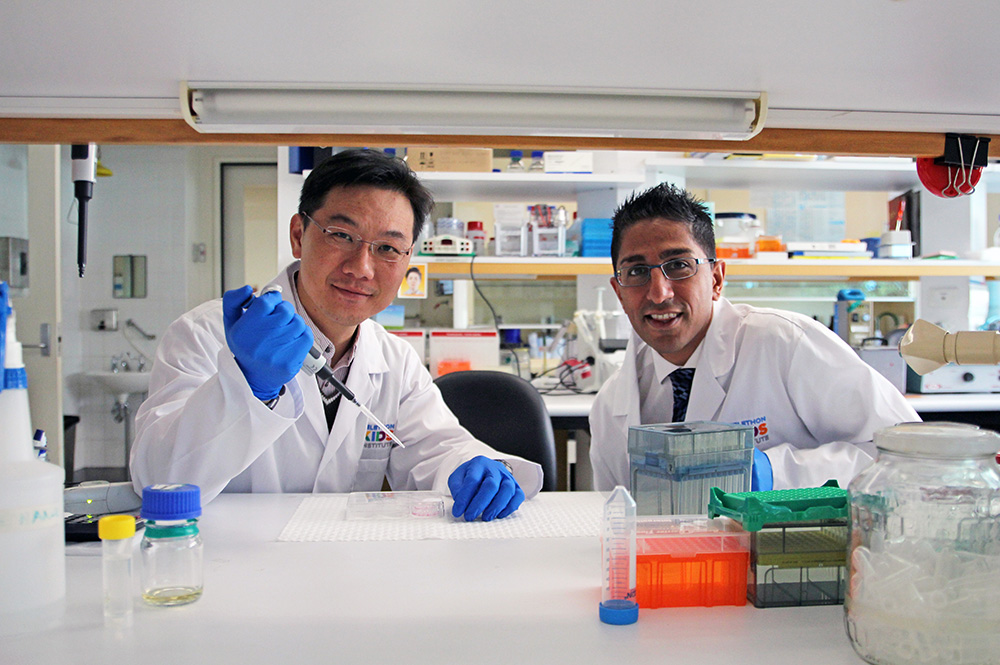Search
Research
Effect of maternal prebiotic supplementation on human milk immunological composition: Insights from the SYMBA studyImmunomodulatory proteins in human milk (HM) can shape infant immune development. However, strategies to modulate their levels are currently unknown. This study investigated whether maternal prebiotic supplementation alters the levels of immunomodulatory proteins in HM.
Research
Mums Minds MatterAmy Jenny Susan Desiree Keerthi Finlay-Jones Downs Prescott Silva Kottampally BPsych(Hons), MPsych(Clinical), MHealthEcon, PhD (Clin Psych) BApplSci

News & Events
Child health and obesity the focus of international built environment studyResearch data from more than one million Australian and Welsh children will be examined to help better understand how the built environment affects child health and obesity, as part of an international research project to be co-led by The Kids Research Institute Australia.

News & Events
Bone density treatment found to slow the progression of leukaemiaThe Kids Research Institute Australia researchers may have unlocked a vital key to reducing the progression of leukaemia in children, potentially prompting a change in thinking around the best way to target treatment.

News & Events
Researchers receive crucial near miss fundingCongratulations to three outstanding The Kids Research Institute Australia researchers who have received second chance WA health funding designed to support researchers who have narrowly missed out on highly competitive national funding.
Research
Children's CancersCancers in children are very different from cancers in adults - in most cases they appear to strike simply at random. They also develop differently and can spread more rapidly and aggressively. And because cancers in children are not obviously linked to their lifestyles, much work is needed to pinpoint their cause.

News & Events
Rapid diagnosis for childhood brain cancer in WAThe Kids Research Institute Australia's Brain Tumour Research team will develop and implement cutting-edge technologies to revolutionise the speed of brain cancer diagnosis for WA children, thanks to more than $200,000 from Telethon.

News & Events
Inside the lab: children’s brain tumour research in WAAt The Kids Research Institute Australia, our Brain Tumour Research team is leading the charge to change the story for children diagnosed with brain cancer by working on safer, more effective treatments.

Leaders in the not-for-profit, research, philanthropy and business sectors have joined forces to shine a light on the human and economic benefits of early support for Australian children.

News & Events
CoLab Early Years InitiativeAs we all know, we only get one start in life. Like the Minderoo Foundation, our partners in CoLab, we are determined to ensure that every start is a strong one for children across Australia.
